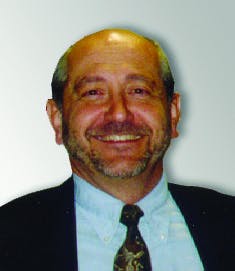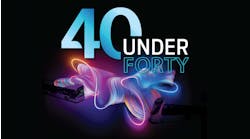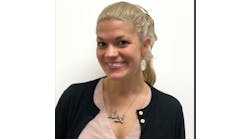What Has Your Agency/Company Done to be Green?
Urbana, Ill.
Bill Volk
Managing Director
Champaign-Urbana Mass Transit District (CUMTD)
The Champaign-Urbana Mass Transit District is a small agency that accomplishes big things. Our participation in the “green” movement is no different. The key to our success is company-wide, cross-departmental buy-in.
One of the earliest, most significant projects we did involved our buses. Our Director of Maintenance began work with Dr. Xinlei Wang, an Associate Professor of Bioenvironmental Engineering at the University of Illinois to study the feasibility and impact of installing diesel particulate filters on the exhaust systems. The EPA funded the study, which began in the winter of 2007, and the design and construction of four filters. The filters were placed on in-service buses and monitored for three years. Dr. Wang found that the filter captured 90 percent of the diesel sub-particulates and 75 to 85 percent of the hydrocarbons and carbon monoxide emitted from the engine. Over the course of a year, a single filter captured six tons of pollution.
The success of the initial filters resulted in the donation of funds for three more by the American Lung Association in spring 2009. The impact of the filters was multiplied when we received American Recovery and Reinvestment Act (ARRA) through U.S. EPA funding to purchase an additional 43 filters in February 2010. Currently, 80 percent of our fleet is clean burning. As we purchased new hybrid buses in 2009 and 2011 (another green choice), we installed a diesel particulate filter on each bus. We plan to retire more vehicles from the 1990s in the next two years. This will lead to 100 percent of our fleet burning diesel fuel cleanly.
The pollution reduction makes a great public relations piece in addition to being a wonderful gift to the environment. Our Maintenance Department worked hard to install the initial 50 filters and invests time maintaining them.
Bus idling presents a challenge to the filters. When a bus is in operation, the engine reaches temperatures hot enough to burn the particulate matter into ash. But when a bus idles, the diesel is burned at lower temperatures causing the filters to get plugged up before the particulate can turn into ash. This negative outcome must be remedied by “cooking” the filter for 24-48 hours. The Maintenance Department needed the Operations Department to change the behaviors of our drivers.
An Idling Procedure was enacted that instructs operators to turn-off their vehicle if they are remaining stationary for more than three minutes. Adherence to the policy results in a reduced footprint, functioning filters, and a time savings.
Another multi-year project MTD committed to was the development and implementation of an environmental management system. We were enrolled into the FTA’s Environmental and Sustainability Management System Institute in the fall of 2010.
By the end of 2011, MTD will have a complete environmental management system to prepare all 300 plus employees for spills and emergencies, as well as institute dozens of environmentally positive practices and safeguards against waste. MTD’s EMS will allow us to apply for ISO 14001 certification, which is an international accreditation.
The policies, procedures, and documentation require time and collaboration. Once the plans are in place, operators and technicians will need to be trained and retrained on a regular basis.
There are benefits to creating and implementing an EMS outside of being responsible stewards of the planet. Having plans in place for possible fuel, oil, or other lost resources saves money and keeps MTD in line with local, state, and federal regulations. It also keeps our workforce educated and aware of possible mishaps. Creating a formal documentation process will also help combat a knowledge dearth with turnovers and retirements.
Other projects include the installation of a geothermal heating and cooling system, white roof, and adding reclaimer and recycled water tanks for our bus wash. See the “Go Green” section of our website to learn more, www.cumtd.com.
Seattle, WA
Kevin Desmond
General Manager
King County Metro Transit
King County Metro Transit is headquartered in Seattle and serves the 1.9 million residents of King County — a sprawling service area of 39 cities, dozens of unincorporated communities, and vast rural areas.
The region collectively has a deep interest in environmental issues, particularly when it comes to protecting air and water quality. It is an economic interest because of our agriculture and fisheries industries, and a personal commitment to healthy living with abundant recreational opportunities.
Transportation is the largest source of greenhouse gases in King County, representing about half of our emissions. This means the way we plan our growth and transportation today will "cast the die" for future emissions by determining how people travel to work, play, shopping and services.
Fortunately, many of the steps we take to reduce greenhouse gas emissions — like creating vibrant urban centers where people can walk, bike or use transit — also have benefits for improving public health and protecting our open space, waterways, farms and forests.
Metro mirrors the environmental commitments and investments of the region it serves, and has been recognized as one of the greenest transit agencies in the nation. It's not just one thing that we do, it's woven into all of our operations and support activities. We are constantly looking for more opportunities to provide environmentally conscious service.
The bus, vanpool and ridesharing services Metro provides sustain our communities and natural environment. They reduce energy consumption, air pollution and roadway runoff. Transit also contributes to economic prosperity and livable communities by getting people to jobs, schools, health care and leisure activities.
At Metro, one of our biggest contributions to environmental sustainability is our fleet of hybrid and electric buses. We have one of the largest fleets of hybrid articulated buses in the nation, and our electric trolleys produce zero emissions. Our diesel coaches run on the cleanest fuels available.
This year, we'll help pave the way for broader use of plug-in electric vehicles. Metro is using federal grant resources to install about 70 charging stations around King County — many in park-and-rides where they'll be available for public use. We plan to add 20 plug-in electric vehicles to Metro's vanpool fleet. And, the county has received federal funding to purchase a prototype electric-powered bus that will be able to travel up to 30 miles off the grid before recharging.
We've also adopted green practices behind the scenes. Metro's recycling program kept 100 tons of material out of landfills last year. We recycle everything from paper to engine oil to broken bus-shelter glass. Our custodial group is justifiably proud of the award-winning green cleaning program they developed. They use "green seal" cleaning products and microfiber mops that require less water to do the job. Recently they started using ionized water and steam pressure on many of the surfaces they clean.
Metro's commitment to sustainability continues into building energy-saving facilities, marketing travel options that let commuters leave their cars at home, and spearheading land-use policies and planning that reduce dependency on fossil fuels. Transit is a big player at the environmental table in the Pacific Northwest. Here in King County, many countywide environmental and development policies rely heavily on transit strategies to be successful. In turn, Metro uses state, regional and local environmental policies as a guide for developing operational programs and planning strategies.
Making a commitment to "being green" cannot be just a slogan or public relations spin for the transportation industry. It is in our best interest to commit to sustainable practices to sustain our own budgets, our own customer base and our own quality of life.
Scottsdale, Ariz.
Alan Wulkan, Managing Partner
Tesse Rasmussen, Sustainability Manager
InfraConsult LLC
InfraConsult is a consulting firm specializing in the development and financing of sustainable infrastructure projects and solutions. The firm currently has offices in Scottsdale, Ariz.; Los Angeles, Calif.; San Diego, Calif.; and Honolulu, Hawaii. InfraConsult offers a variety of services including project and program management, transportation system environmental and operations planning, transportation policy consulting, and public involvement and community outreach. Regardless of the project or related services, the company strives to incorporate sustainable strategies in all of its endeavors.
From the firm's inception in 2006, InfraConsult's managing partners have been conscious of the social and economic benefits of sustainable practices, recognizing the environmental impacts of the infrastructure and transportation industry. It is for this reason that the firm's mission is based on a philosophy of innovation and efficiency and why management has identified sustainability as a key goal.
In line with the firm's mission, InfraConsult engages in numerous efforts to support its sustainability goals. The firm's policies include using environmentally sound supplies and equipment and encouraging employee attendance at relevant sustainability conferences and seminars. More specifically, InfraConsult utilizes pre-owned office furniture, and refurbished or rented office equipment. Similarly, the firm opts to forgo establishment of physical office locations until it is essential. "We operate InfraConsult without the burden of geographic anchors," says InfraConsult Managing Partner Michael Schneider. Prior to leasing an office, staff telecommutes, meeting at the client's request when necessary.
Though a smaller consulting firm (approximately 40 employees), InfraConsult has joined a number of large agencies in committing to a set of actions on sustainability by participating in the American Public Transportation Association's (APTA) Sustainability Commitment pilot program. With the other participants, InfraConsult helped to pioneer the program by testing the base requirements, establishing accountability mechanisms, and determining the overall program structure. Although the firm had engaged in sustainable practices in the past, participation in the pilot phase gave way to new sustainable efforts. Over the course of the last two years, InfraConsult has engaged in a number of sustainable practices such as recycling, purchasing additional alternative "green" office products, and switching to compact fluorescent light bulbs and reusable dishware. In addition to identifying a sustainability manager, the firm also formed a sustainability committee; the committee is staffed by employees from all four offices, holds meetings via teleconference, provides APTA with annual progress reports, and educates employees through the company's electronic newsletter. Annual employee surveys allow the committee to keep the pulse of sustainability efforts in each office, and to initiate new company-wide efforts. By participating in the APTA Sustainability Commitment pilot phase, InfraConsult continues to demonstrate its commitment to make sustainability a part of the organization's strategic objectives.
"Empowering our employees to make sustainable decisions at work has influenced the way we live outside of the office; it has connected us to our communities and it has united us in a goal for the common good at work. There is no part of our lives these initiatives don't affect," says Tesse Roberts, InfraConsult's sustainability manager.
Involvement in the pilot phase of the APTA Sustainability Commitment has allowed InfraConsult to represent smaller companies and agencies, which often are limited in the green strategies that can be implemented. Unlike multi-national companies and agencies with thousands of employees, smaller firms often lease office space rather than own buildings, cannot take advantage of economies of scale, and must implement sustainability strategies selectively to get the most "bang for the buck." The flexibility of a smaller organization is an asset in this case: when leasing a new office, building recycling policies, access to transit, and other non-traditional amenities can be moved to the top of the checklist.



